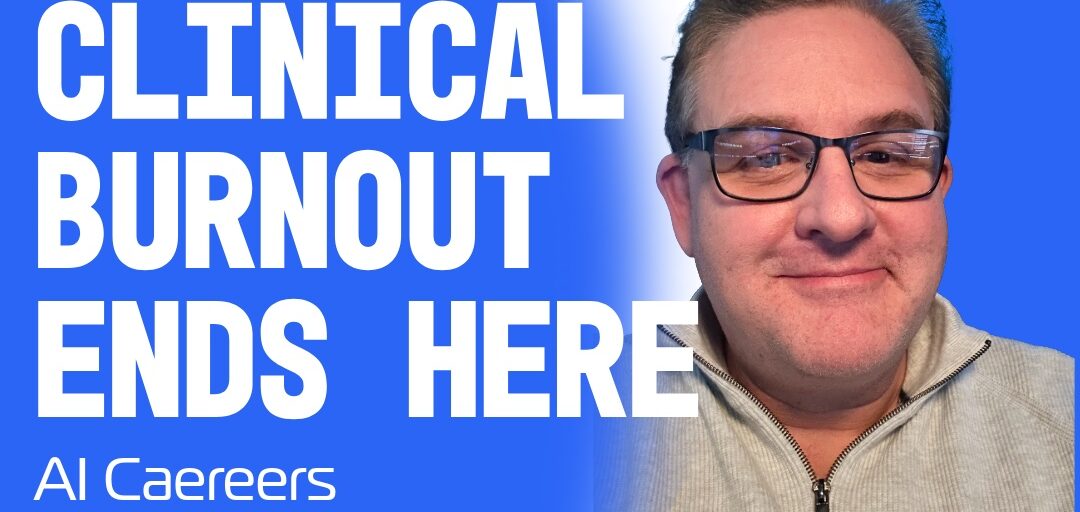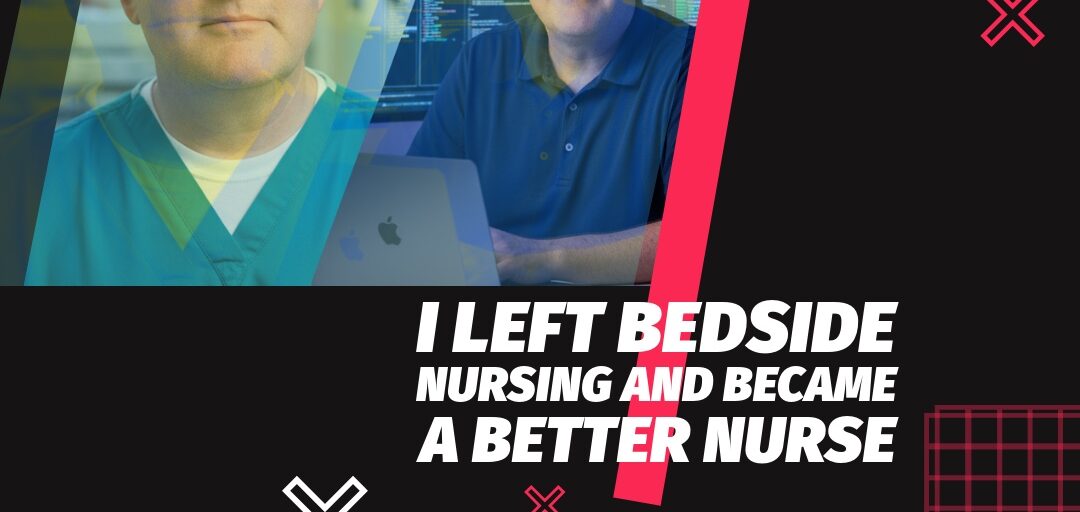From Bedside to Digital Health: Transforming Your Clinical Expertise into a Balanced Career
Written by Rod on April 7, 2025
Are you a healthcare professional feeling trapped in the chaos of clinical work? Do long shifts, burnout, and missed family events leave you wondering if there’s a better way to use your valuable skills? Digital health might be the career transformation you’ve been searching for.
The Reality of Clinical Burnout
Let’s be honest about the typical day in clinical healthcare. You park your car and take deep breaths, knowing those moments are the last peace you’ll have for the next 12-14 hours. Once inside, it’s pure chaos – logging 5-10 miles per shift, catching medication errors, and maintaining perfect professionalism despite exhaustion.
Many clinicians face:
- Exhausting 12+ hour shifts with no flexibility
- Constant understaffing and workplace chaos
- Physical demands causing swollen knees and back pain
- Missing important family events and milestones
- Limited impact (one patient at a time)
The burnout epidemic in healthcare isn’t just a headline—it’s your daily reality.
Why Digital Health is the Perfect Pivot
The digital health industry is EXPLODING with opportunity. Technology is rapidly transforming healthcare delivery, and companies desperately need professionals who understand both healthcare and technology from the inside.
Here’s what makes your clinical experience the perfect foundation:
- You understand healthcare workflows and what makes them broken
- You speak medical terminology that tech people don’t get
- You know the real challenges patients and providers face
- You’ve seen where the system fails and how it could be fixed
Think about it—who better to help design the future of healthcare than someone who’s been in the trenches?
Your Clinical Skills Are Worth Six Figures
Your bedside experience is INCREDIBLY valuable in digital health. Companies are actively seeking people with your background for roles such as:
- Clinical Consultant
- Program Manager
- Project Manager
- Clinical Analyst
- Implementation Specialist
- Telehealth Director
Contrary to popular belief, digital health positions often pay the same or BETTER than bedside roles. Many clinicians see 15-30% salary increases in their first year after transition, with some seeing 100% increases by their second year.
And the best part? You don’t need another degree. While some pursue advanced education, most successful transitions happen through focused training and certifications that build on your existing expertise.
Life-Changing Work-Life Balance
Imagine this transformation:
Before:
- 12+ hour shifts
- Missing family events
- Physical exhaustion
- Set schedules with no flexibility
- Constantly understaffed
- One patient at a time impact
After:
- Regular 8-hour workday
- Home for dinner every night
- Mental challenge without physical drain
- Flexibility to set your own schedule
- Proper resourcing for projects
- Impact on thousands of patients at once
Digital health offers the freedom to work remotely, set your own hours, and actually be present for your family—without sacrificing your passion for healthcare or your income.
Making a Bigger Impact
If making a difference drives you, digital health won’t disappoint. Instead of helping one patient at a time, you could:
- Develop technology that detects diseases earlier
- Create systems that connect rural patients to specialists
- Design solutions that reduce provider burnout
- Improve healthcare delivery for underserved communities
This isn’t about abandoning healthcare—it’s about transforming it from an inside position where you can actually make meaningful change happen at scale.
Debunking Common Myths
Let’s address the biggest misconceptions about digital health careers:
Myth #1: You need to be a tech expert. Reality: You need healthcare expertise first, tech second. The technical skills can be learned, but your clinical knowledge is irreplaceable.
Myth #2: You’ll take a pay cut. Reality: Many roles pay equally or better than clinical positions, with significantly better work-life balance.
Myth #3: You need another degree. Reality: Certifications or focused training are often sufficient. Your clinical background is the prerequisite they’re looking for.
Myth #4: You won’t make an impact on patients. Reality: You can help thousands instead of one at a time, creating solutions that transform entire healthcare systems.
Your First Steps Toward Digital Health
Ready to explore this exciting path? Here’s how to get started:
- Assess your transferable skills – What clinical knowledge do you have that digital health companies would value?
- Identify digital health roles that match your experience and interests
- Determine what additional skills you might need to develop
- Update your resume to highlight your clinical expertise in a way that appeals to digital health employers
- Start networking with professionals already working in digital health
The journey from clinical work to digital health isn’t always straightforward, but it can be incredibly rewarding. With the right guidance, you can leverage your healthcare background to build a flexible, lucrative, and impactful career that gives you the freedom to truly live your life.
Are you ready to transform your career without abandoning your healthcare expertise? Digital health might be exactly the escape route you’ve been searching for.




